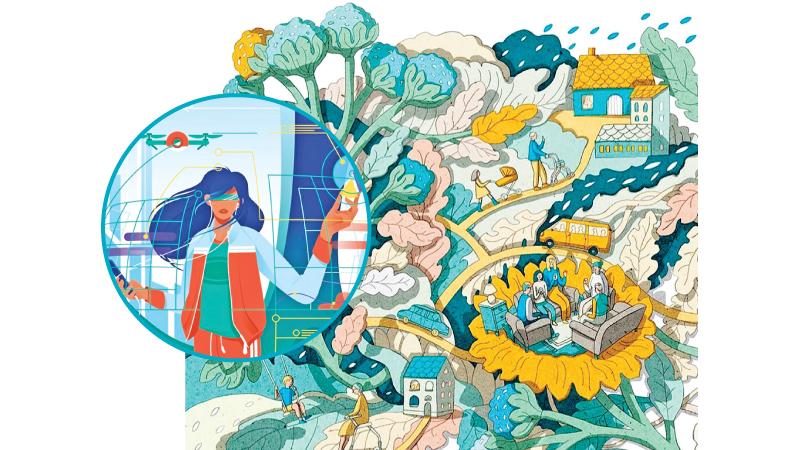
The modern world is standing on globalisation. A world where the word instant has become the main word in quite every language. We talk about global crisis, global economy, global communication, global warming, but countries are still run by village rules. That means that every country has its own way of being, living, talking and behaving.
 That is why culturally we are not global.
That is why culturally we are not global.
I don’t laugh at the same thing you laugh at. In a speech at a TED conference, lawyer Peter Alfandary explains how much we talk differently.
This world stands on two pillars: the English language and digital communication.
Given that English is so widespread and it’s so easy to communicate nowadays, there’s the belief that we can understand each other.
English certainly gives us the opportunity to break borders and walls, we can talk with everyone, no matter where they come from. And digital technology has cut the distance, bringing together distant affections and friendships.
However, there’s a strong belief that in many countries, such as Sri Lanka (usually those countries which in the past have been colonised by the English), where the English knowledge is a social status, that given that we can communicate perfectly. On the other hand, digital communication has not only become the main source of global information and communication bringing messages in real time, but it has also promoted much fake news: In human history there has never been such a spread of disinformation as it is today. Fake news which, much of the time, are spread during tragedies release panic, fear and hate. Culture can’t be globalised for the same reason why beliefs in our hearts can’t be taken away and sometimes can’t be put in words.
Every culture has its own words, manners and traditions which can’t be transmitted by languages other than their own. They don’t have their corresponding word in the other languages or the translation will not have the same meaning as the original word.
That is why learning a second language doesn’t automatically make a person bilingual.
All bilingual people around the world have one common thing: They live inside both languages. Culture, habits, food, smells and daily life are a part of each language. They communicate with both languages understanding all these things.
The psychologist Paul Watzlawick once said, “the truth doesn’t lie in what I say, but it lies in what you understand”.
Globalisation created an apparent veil of understanding based on freedom of thought and speech, where tolerance and empathy are conquering and the appearance of having everything under control rules our days.
In a speech about how we should be politically correct, philosopher Slavoj Žižek says that tolerance doesn’t exist. It’s just a word. It’s a word built on the idealisation of the other and the over regulation of the nations. The line is thin.
A person is tolerant towards another if he is at a proper distance. The moment this one gets closer, the other one starts to get more and more distant. So, inside the word tolerance lies intolerance.
There’s no right way to live in this modern world. We just have to analyse our own lives, understand if we are living in order to fulfil other’s rules or to satisfy ours.
We need to teach children and adults cultural intelligence, understanding the fact that embracing the other doesn’t take away anything from us, we don’t lose our identities.
Cultural intelligence is accepting that we don’t reason and think the same way, and it’s also understanding our own culture with these same parameters. There’s a byword that says: “The last thing that the fish notices is the water he is swimming in”. Let’s start from our water and then, after that, try to go to the other’s water.
